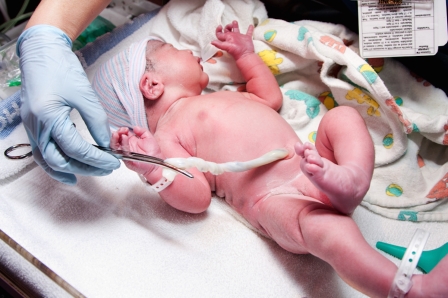
Sage Therapeutics has avoided the “great quicksand of drug development” for now. That was Sage CEO Jeff Jonas’s description of depression a couple months ago in a conversation with Xconomy. Today, Sage (NASDAQ: SAGE) is reporting positive Phase 2 data in postpartum depression, an often severe form of depression that strikes women during and after childbirth. Cambridge, MA-based Sage’s stock is up 39 percent to $ 13.16 per share as of 1 p.m. Eastern time.
The study repeats excellent results released last year in four patients. But one year later, the sample size remains a big caveat. The Phase 2 study only included 21 women, randomly assigned to either a drug group or a placebo group. Ten of them received Sage’s drug, SAGE-547. Seven of those 10 showed remission from their severe depression 60 hours after taking the drug. Those women were free from depression 30 days after taking the drug, as well. In the placebo group, two of 11 were depression-free at 30 days.
The limited but significant results are sure to spark a debate over trial size, and whether Sage has done in depression what some companies have done in cancer: find a small, well-defined patient population to respond favorably to a drug with a narrowly defined target. Patients with postpartum depression also have a rapid decrease in a brain chemical called allopregnanolone, which Jonas said ‘547 can help replenish because of its effect on a complicated neurotransmitter system in the brain. “If we’re right, we may have a more direct treatment effect than, say, an SSRI does,” he said before the results were reported, referring to selective serotonin reuptake inhibitors, the standard-of-care class of antidepressants.
There are no drugs specifically approved for postpartum depression. No patients in the Phase 2 study suffered any serious side effects, Sage said.
Another well-regarded depression drug, from the Irish domiciled Alkermes (NASDAQ: ALKS), also showed great promise in Phase 2, only to crash in a pair of Phase 3 trials earlier this year with more than 800 people enrolled. Like SAGE-547, the Alkermes drug was an alternative to SSRIs.
There is a second caveat to the Sage depression study. ‘547 is administered as a 60-hour continuous infusion. That’s two and a half days hooked up to an IV line in a clinic or hospital bed, and might not be feasible for some patients—although some cases of postpartum depression require hospitalization.
With that in mind, Sage will start testing the same drug in pill form (called SAGE-217). There’s no guarantee that a new form of a drug, switching from an intravenous liquid to a swallowed pill, will work in the same way. The pivot from IV to pill is part of a larger plan to use ‘547 as a test case, or “probe,” for a range of neurological diseases. With the postpartum data it now has two encouraging nods. Last year it reported positive data from a study using ‘547 to treat 22 people with a severe form of epilepsy called super refractory status epilepticus. Sage should be emboldened to be more aggressive in other indications.
Sage will also expand the ‘547 trial to find the right dose in both moderate and severe patients, it said. The tiny size of the current trial, no matter how positive the numbers so far, requires more evidence. Sage said if the data from the expanded trial are positive, it would ask regulators if those data are enough for marketing approval.
(24)